
The island of St. Croix in the U.S. Virgin Islands has a long and storied history of agriculture dating back centuries. From its early cultivation by indigenous islanders to the emergence of over 150 plantations during colonization, agriculture has played a pivotal role in shaping Crucian culture and tradition. This rich agricultural past is celebrated annually during the St Croix Agrifest Festival – a vibrant country fair-style event held every President’s Day weekend.
Indigenous Roots
The native islanders who inhabited St. Croix, the Taino people, were the first to develop organized agriculture on the island. The Taino cultivated crops like cassava, sweet potatoes, corn, beans, peppers, pineapples, and tobacco. Fishing was also critical for sustaining the native populations. And here on the island, then known as Ay-Ay, fish was plentiful due to the dramatic increase in depth just offshore.
When Christopher Columbus and his fleet arrived in 1493, roughly 40,000 Taino were inhabiting St. Croix and thriving. From that point, their numbers rapidly declined due to European diseases, conflict, and enslavement. Though the Taino’s reign was brief, their agricultural practices laid the foundation for the colonists to come.

Plantation Agriculture on St Croix
In 1733, the Danish West India Company purchased the island of St Croix from France and began to develop their colony. At the time, there was an established colony of French plantations cultivating the land. The Danes had the money and mercantile expertise but lacked the experience and manpower needed to develop sugar plantations on the fertile island.
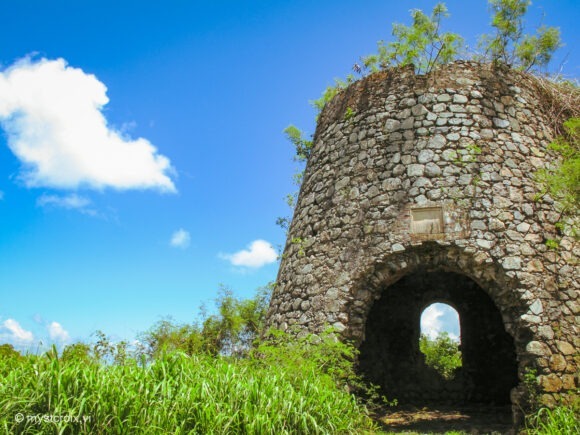
In 1754, the Danish fully claimed control of St. Croix and accelerated sugarcane production bringing in Irish migrants from Montserrat and Ireland. Sugarcane, cotton, and tobacco became the main cash crops, fueled by the labor of enslaved Africans. St. Croix’s agricultural output soon surpassed that of the nearby sister islands, St. Thomas and St. John.
The Breadbasket of the Caribbean
In 1815, St. Croix recorded a production yield of over 20 million pounds of sugar, which was extremely high for that time and unmatched on other Caribbean islands. In comparison to other Caribbean islands, St Croix was relatively flat and had more land to cultivate. St. Croix also has fertile, volcanic-based soil on its western half, known as Victory soil, and alluvial soils to the east and north. This nutrient-rich soil allows for productive crop cultivation. The clay composition also helps to retain moisture.
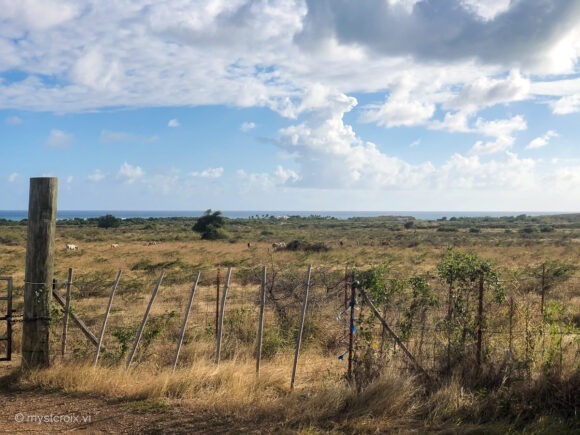
At its peak in the 1800s, St. Croix had approximately 150 plantations spanning over 30,000 acres. Major crops included sugar, rum, molasses, and fruit. These agricultural products weren’t only shipped back to Denmark but were also supplied to other British and American islands. Thus, the phrase “Breadbasket of the Caribbean” arose to acknowledge St. Croix’s vast agricultural productivity and its role in feeding and supplying many other islands in the region.
When slavery was abolished in 1848, the plantation system quickly collapsed. However, agriculture persisted in the form of small subsistence farms.
Modern Agriculture
Today, St. Croix has a diversified agricultural system producing vegetable crops, cattle, small livestock, honey, and tropical fruits. Local farmers use both traditional and modern techniques. The island is also starting to cultivate on a wider scale, breadfruit. Breadfruit is one of the most sustainable crops across the globe and it’s the base for locally produced Mutiny Island vodka!
Because St. Croix has a tropical climate with warm temperatures year-round, averaging around 85°F and fairly consistent rainfall from November through May, this provides an ideal environment for growing tropical crops year-round. You’ll find farm stands and farmers markets selling fresh produce throughout the week and all year round (we’ve got a great list here).
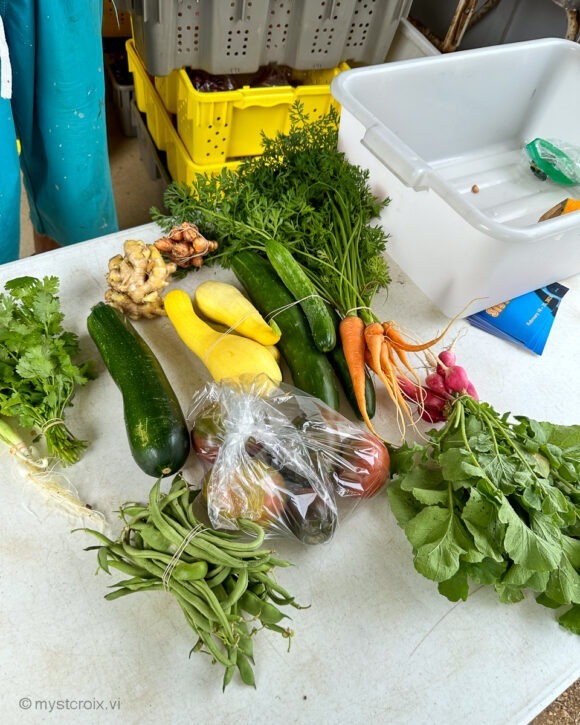
And while agriculture is no longer the primary economic driver on the island, it remains deeply woven into Crucian culture and local cuisine. Family farms, roadside stands, farm-to-table dining and a general pride in the island’s agricultural heritage continue to thrive. Periodic “Slow Down Dinners” at Ridge to Reef Farm are a great example and an island culinary highlight.
History of St Croix Agrifest Festival
Celebrated each February over the Presidents’ Day long weekend, Crucians pay homage to their agricultural roots through Agrifest – a lively, country fair-style harvest festival. Started in 1985, it has grown into one of St. Croix’s hallmark cultural events and is the largest agricultural fair in the Caribbean.
St Croix Agrifest Festival celebrates all things agriculture – from the tropical fruits and vegetables grown today to the plantation crops of yesteryear. Local farmers and growers display and sell produce and plants while food vendors serve up classic Crucian and other West Indian dishes. It is a fun, family-oriented event with Caribbean music, farm demonstrations and competitions, craft vendors, activities, and plenty of animals on display, including a petting zoo.
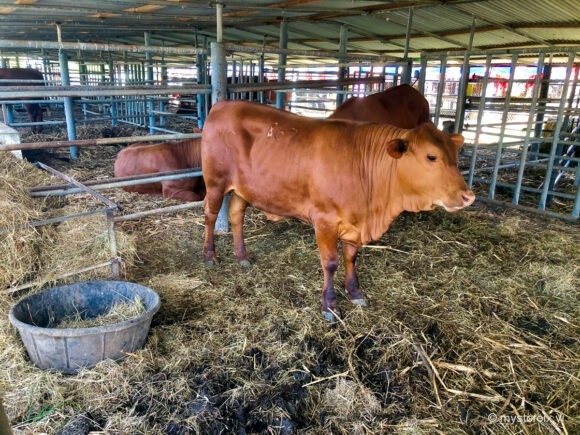
The highlight is the agricultural fair and livestock show where farmers enter cattle, small animals, and produce to be judged. Agrifest also includes agricultural education for youth, recognizing the future of farming in St. Croix depends on the next generation. Be sure to browse through the main building housing displays by local school groups and government agencies, along with plenty of farmers selling produce, plants, and value-added products like preserves, jams, jellies, spice mixes, and more.
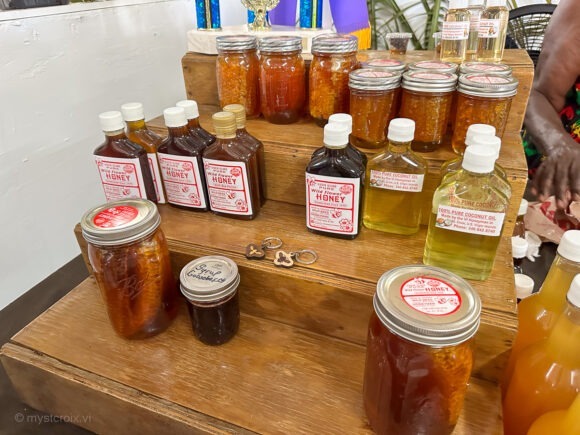
The annual Agrifest serves as a tribute to those who came before and paved the way for agriculture in St. Croix. It represents the crops, local cuisine, and traditions that have sustained Crucians for centuries. For both locals and visitors, Agrifest offers a taste of authentic Caribbean island and Crucian culture.














